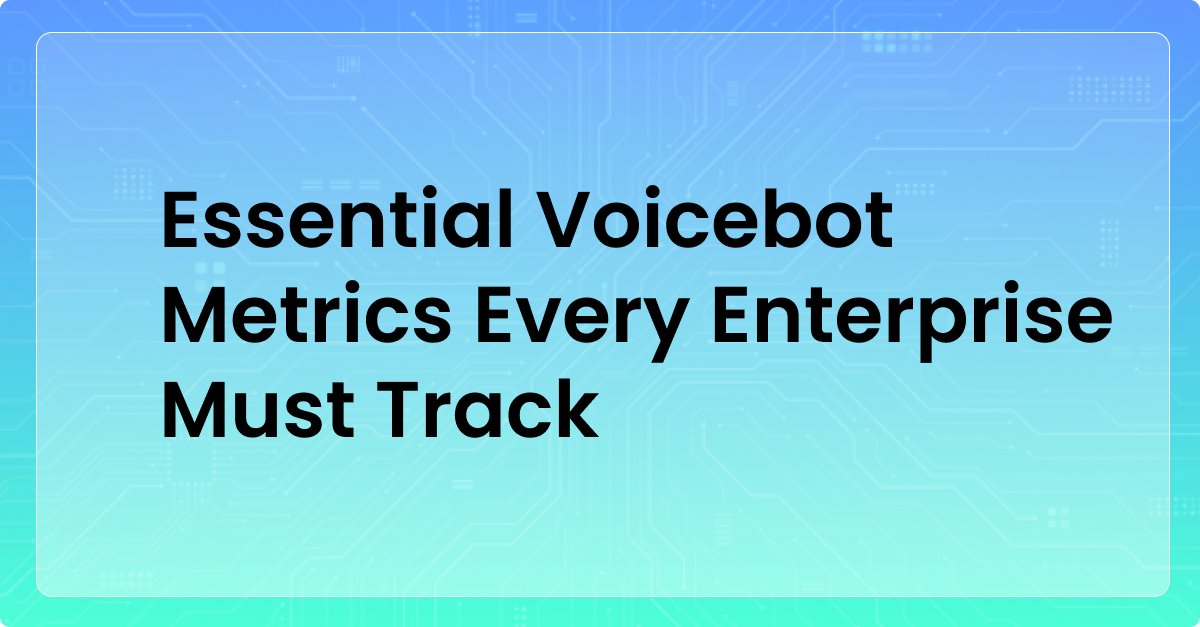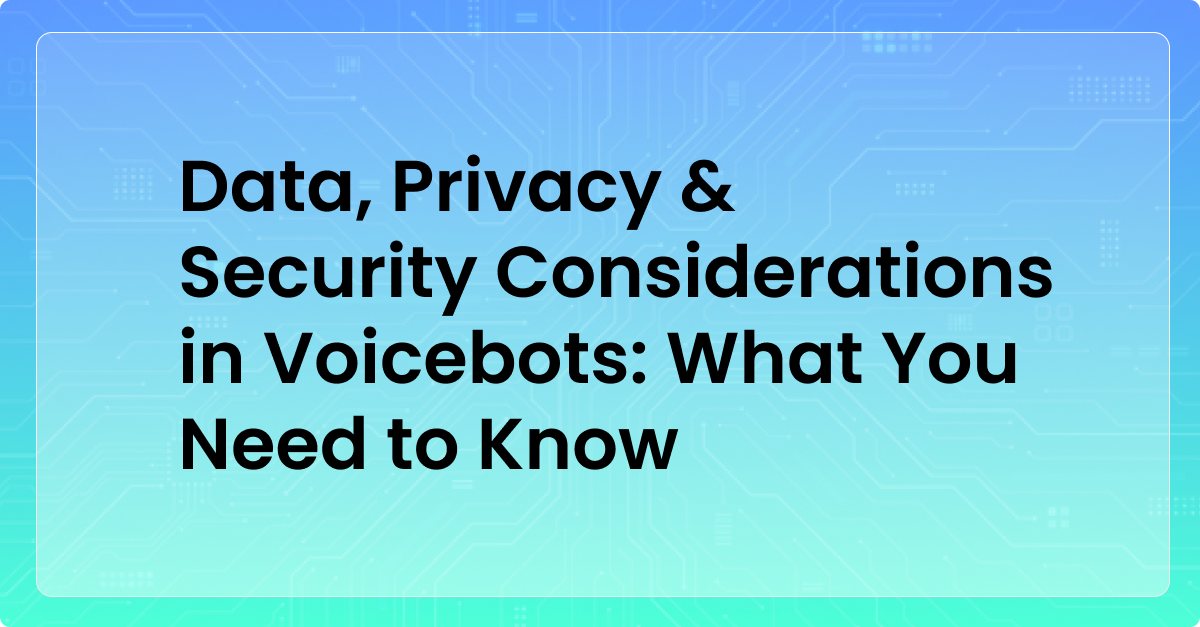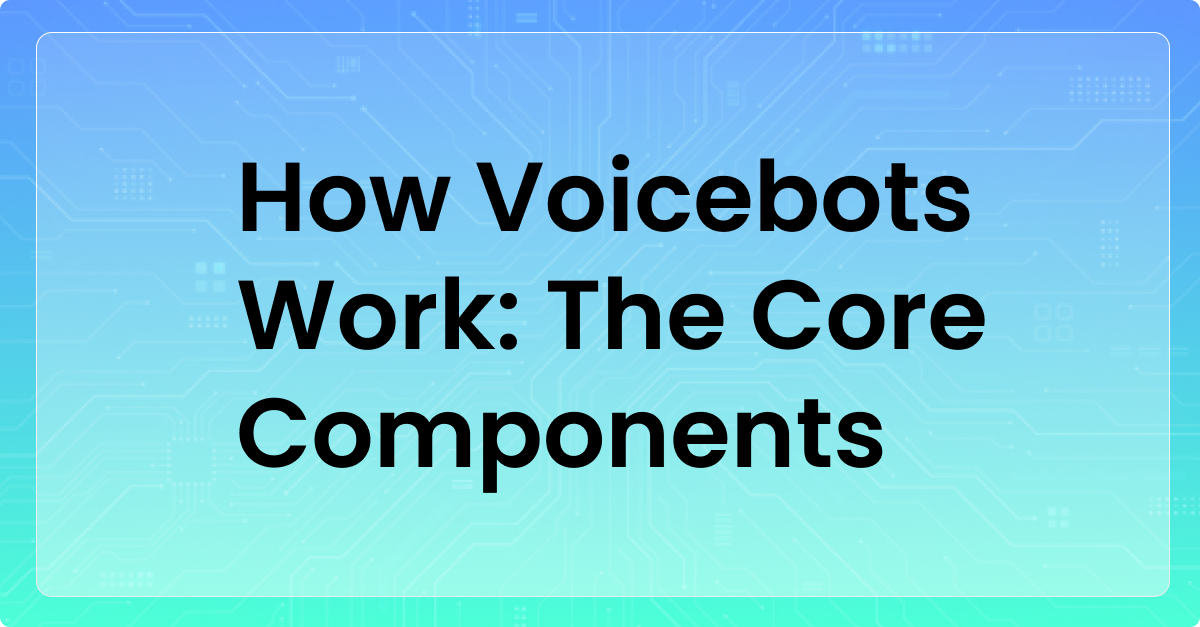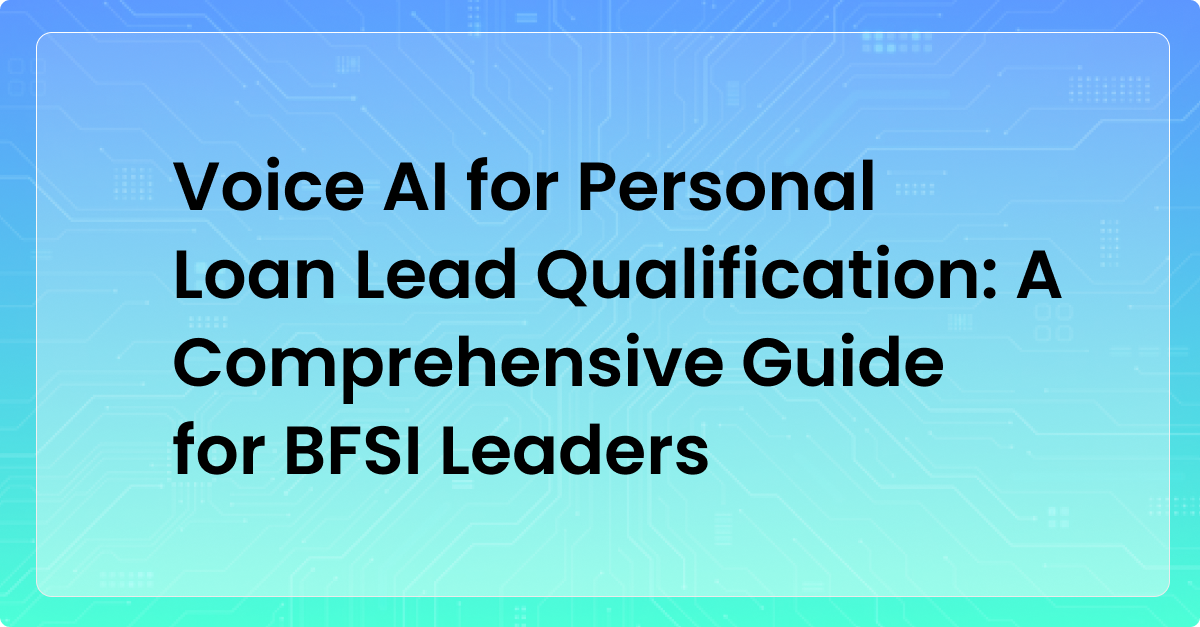
Essential Voicebot Metrics Every Enterprise Must Track
Voicebots are quickly becoming essential tools for enterprises looking to boost customer experience, optimize operations, and save costs. But how do you really know they’re working? What numbers should you watch to measure their success…




